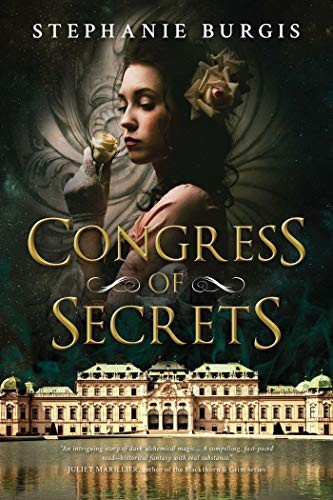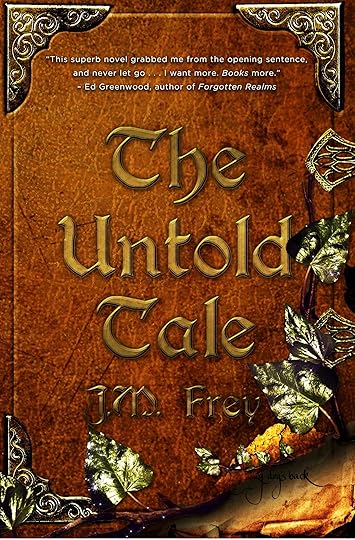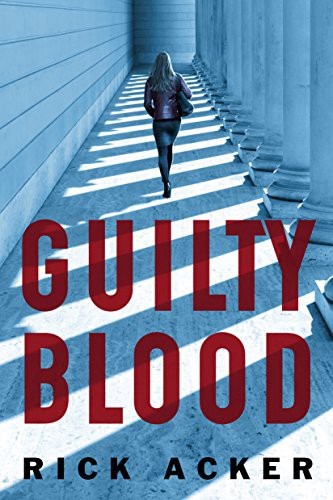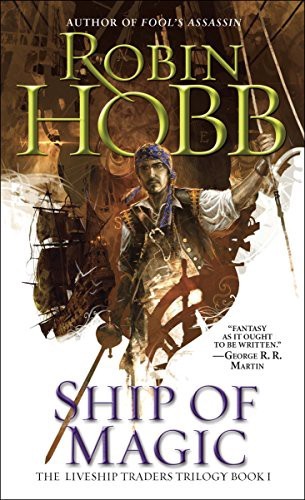Ransom Stephens's Blog, page 2
May 15, 2020
You found the choice that I made to prevent the math from being even more daunting.
You found the choice that I made to prevent the math from being even more daunting. Glad you asked so that I can take it one level higher.
To everyone who is uncomfortable with a square root, go have fun! Live your life!! Read a novel instead, search my name, you’ll find one you like, but don’t proceed into the morass that follows.
Ahem.
The uncertainty in the number of passes, N-pass, is as you caught in the article: sqrt(N-pass) and the uncertainty in the sample is sqrt(N-total). That’s fine, up to arguing whether the statistics follow a Gaussian (it’s pretty close for anything over about 20, and besides, cocktail napkin calculations).
But the uncertainty on the ratio is trickier and I left that out because the correction is small. Doing it right, you have to make use “propagation of errors” and make an assumption that’s unwarranted (but good enough for cocktail napkins).
The uncertainty in the ratio f(a, b) = a/b, given the uncertainty in a, da, and the uncertainty in b, db, is:
d[f(a,b)] = sqrt[ (df/da)²(da)² + (df/db)²(db)²+
(df/da)*(df/db)*da*db*rho) ]
where rho = the correlation between a and b. We assume it’s negligible, which is highly debatable since, in our case the sample total is correlated to the pass/fail numbers.
When you do the algebra (and post it here for all to see ;) you can convince yourself that for cocktail napkin calculations, the total uncertainty in our case is
d(fraction that passes) ~ d(N-pass)/N-total = sqrt(N-pass)/N-total

May 7, 2020
Your Guide to Evaluating Clinical Results
Covid-19 clinical trials are all over the map. Here are the tools you need to separate science from sensationalism.
October 17, 2019
Ransom Reviews
September 20, 2019
Ransom Reviews
September 12, 2019
Ransom Reviews "Soulless" by Gail Carriger
So I grabbed a copy of Soulless for a few reasons: it had the most reviews of any of her books, was the first in a series, and was cheapest (yes, you can see how I roll). I realized after I finished it that it is also her debut work, published about ten years ago; had I noticed this before reading it, I would have chosen another title because we become better writers with each book and I want to see the best!
In Carriger’s Victorian London, vampires and werewolves are accepted if not welcomed by society to the extent that they have representation in government, a shadow branch of parliament that only meets at night, of course.
What grabbed me about Carriger’s work while reading Soulless was her quirky use of language. Similar to what I try to do with Simon Wentworth in my Time Weavers books, e.g., Too Rich to Die*. Carriger’s Alexia Tarrabotti has a strong-willed, unforgiving relationship with the world. She interprets things in unique ways that draw us in and share her amusement. Even when the chips are down, the tension runs high, and the situation is hopeless, Carriger manages to maintain that tension without sacrificing Miss Tarabotti’s wit which is no small trick. Here are a couple of my faves:
“… neat as a new penny in a black dress and white apron.”
“It sent tingling shocks through Alexia’s entire body — a most delightful sensation, better than hot tea on a cold morning.”
As a lesson in craft, Soulless, provides a terrific example of PoV (point of view) technique. It’s written in the third person, usually in Miss Tarabotti’s PoV, but at times switches PoV from one paragraph to the next. I don’t read a lot of romance (and I suspect that Soulless is shelved in fantasy/paranormal/steampunk more often than in romance), but a romance writer (and damn, I can’t remember her name!) told me that rapid PoV switching is common in romance so that we can experience erotica on both or each or every side of the, as it were, ahem, equation.
The guiding rule (even in LitFic) is to restrict changes in PoV to chapter breaks or section breaks (i.e., when the author leaves an empty line or dingbats, like * * *, between paragraphs). I’ve broken that rule a few times in cases of intense action, like the scene in The Sensory Deception* when Farley has to choose between his best friend and the woman he loves, but am usually quite careful with it. The PoV switch rule helps keep readers’ minds uncluttered; few readers are conscious of the PoV, but if you bounce around without making it clear whose head you’re looking out of, they get a sense of dissonance and that’s when people set books down.
When she makes frequent, rapid PoV switches, Carriger sticks to the spirit of the rule by establishing the PoV immediately in every switch.
Gail Carriger also provides some nice examples of reasonable uses of adverbs. Use of adverbs and adjectives usually indicate that the author can’t think of a good verb and, instead, decorates verbs and nouns with these paltry modifiers. In this sentence:
Gail Carriger is obviously a genius.
Finally, as a physicist, I’m can’t help but notice mistakes when it comes to certain phenomena, for example, the timing relationship between lunar and solar activity. On the night of a full moon she writes,
“…those few hours after sunrise, before the moon climbed into the sky.”
But a full moon rises at the same time that the sun sets — it’s pretty much the defining quality of what it means for a moon to be full. I don’t blame Carriger, I blame the editors! (please, when you catch a mistake of any kind, always blame the editor.) Plus, ahem, there was this instance in The God Patent when I made a similar mistake, not with a full moon, of course, but with the relative timing of sunrise and the position of a waning gibbous overhead.
Fortunately I have plenty of watchful readers keen to point these things out!
August 24, 2019
Ransom Reviews "Turtles All The Way Down"
I read everything John Green. Not because I’m drawn to young adult (YA) fiction, but because I think Green is the best.
Okay, let me dial it back. When I say “best,” I of course mean that I enjoy reading his books, but I also mean that he does something better than any writer I’ve read this side of JD Salinger: from the first sentence you are as comfortable, as in tune with his style, as lost in the prose, as you will be in 100 or 200 pages (unfortunately few of his books are longer than 300 pages).
Since first reading his work (I grabbed Looking for Alaska* at the Hong Kong Airport in a panic — down to one book with a 15+ hour flight ahead of me), I’ve tried to write books that are as effortless to fall into as Green’s. Combining that crucial first impression/hook that grabs the reader while also making the opening so relaxed that the reader can glide into the prose and ‘get’ the narrative voice from the first sentence is a whole lot harder than it looks. I think I got close in Too Rich to Die*, and by a combination of coincidence and massive workshopping, I wasn’t too far off in The God Patent*. But in The Sensory Deception* I plunged the reader in without net in an unsettling way, intentionally; if I’d read Green before I wrote The Sensory Deception, I probably would have opened that book differently.
There’s a much more important point to this review that links it to my reviews of two other books, Garth Stein’s How Evan Broke His Head and Other Secrets and Alex White’s Every Mountain Made Low.
In Turtles All the Way Down Green exemplifies the purpose of literature. It took Green several years to write Turtles because it covers a deeply personal subject, an obsessive compulsive disorder that he experiences: fear of infection coupled with self-abuse (no, not like that) like washing your hands until they bleed.
The core strength of literature, what makes it more powerful than essay, is that by putting the reader into the heart and mind of characters, we experience what they experience. Our brains mirror the response of those characters and we semi-literally share the experience and that affords us the ability to learn the lessons learned by the characters. Heady stuff! The very reason that I never tried to describe Katarina’s model of the soul in The God Patent. First, it would be a long, complicated explanation, but second, it wouldn’t have any impact. You have to ride along with Katarina, Ryan, and Emmy and figure it out for yourself to taste any magic.
We can say a lot about Turtles — touching story of a teenage girl living an average life, trying to rescue a wealthy but neglected boy and be the best friend of a generous artist who accommodates her self-absorption, all delivered perfectly — but a year after you read this book, you’ll be thinking about it every time you put a Band Aid on your finger.
And finally, if you’d like to receive my famous** Ransom’s Notes, sign up here and, if you ask, I will provide you a free copy of my novel The God Patent* because, in the spirit of The 99%, no one will be denied their right to read it for lack of material wealth! (**they’re not really famous).
August 21, 2019
Ransom Reviews
July 16, 2019
Ransom Reviews
Children of Earth and Sky by Guy Gavriel Kay
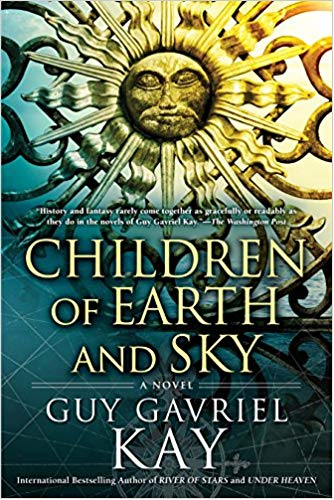
When I was invited to read Too Rich to Die*, at SFinSF (San Francisco’s premier science fiction event) with Guy Gavriel Kay, I sent an email to his publisher asking for an advanced reader copy of his latest book, A Brightness Long Ago*. The idea was to (a) get a free copy before any of my friends read it(!), and (b) prepare for the reading (I’m not at all happy to admit that (b) was the greater motivator — sure sign of age). When the publisher didn’t respond to my email, I went to the bookstore and found a copy of Children of Earth and Sky*, and was pretty sure that I hadn’t already read it.
Children of Earth and Sky is truly epic and it’s a good thing that he includes a dramatis personae list (of characters) in the front matter or there would be a lot of flipping back. There are several major plots (I’d call them subplots, but that wouldn’t do them justice), each is centered on a specific character’s journey. I loved stretching out over almost 600 pages of fantasy that rang so close to historical reality that I found myself looking up the history of central Europe.
Guy gives us several craft insights:
Tense shiftFirst, one of the points of view (PoVs) was written in the present tense but the others were all in the past tense. I didn’t catch an obvious reason for it, but I was impressed with how seamless it was handled. At SFinSF we talked about writing in the past and present and agreed that the present tense moves us a bit closer to the action — it’s happening right now! not back then.
For example, to emphasize the different perspectives, I switched from the past to present in The Sensory Deception* for those scenes that put the reader into the PoV of an animal through virtual reality. It felt a bit clunky at the transitions, but shifting from real to virtual reality is clunky.
ParenthesesGuy also caught my interest with his use of parentheses, like in this bit:
“She wanted to join the raiders, not anger them. And the Seressini spy inside the walls (of course there was a spy, there was always a spy) would almost certainly learn whatever she said …”
Guy’s parenthetical comments served as sort of a narrator within a narrator, often with an amusing quip. I am generally of the (bullheaded) opinion that parentheses have no place in fiction because, if you try harder, you can fit the observation in the narrative flow. But Guy outranks me and his use of parentheses was fun.
Time SidlingWhat I found most interesting about Children of Earth and Sky, craft-wise, was how Guy handled the sequence of time before, after, and around section breaks; what I call “time-sidling.” I do a lot of time-sidling in my novels and seeing how Guy does it both educated me and made me feel like I’d been granted permission.
Section breaks are those spots where authors install a blank line or a line with a centered set of dingbats (e.g., * * *). Like chapter breaks, they’re convenient places to switch from one character’s PoV to another, but if the two characters are in the same scene at the same time, it can be tricky.
If the story needs the reader to see an event from both points of view, it’s convenient to sidle time at the section break: rewind a few seconds or minutes after switching PoVs. The trick seems to be to keep the overlapping times as short as necessary. I found it seamless when just a few sentences overlapped in time. In the following nibble, Guy’s time-sidling meshed perfectly:
“I have never been married,” she said calmly. “My name is You cannot even respect me, Signore Villani, let alone … anything else.”
“I have never been married,” she heard herself saying, by the water, not far from the boat that had brought them here.
The two perspectives on the scene enlightened what each person brought to the conversation. Very solid!
When the time shift is used to convey how two PoV characters arrived at the same scene, it can cause a hiccup because the writer is making two transitions: the PoV shift, and changing the scene.
When time overlapped for more than a paragraph, sometimes as much as a few pages, I felt a sort of déjà vue, like, “didn’t this already happen?” and a few times I did what no novelist ever wants her readers to do: flip back a few pages to see if I’d missed something.
Pros and cons of doing a reading with a famous Guy
A couple of other things related to my experience with Guy at SFinSF that I hope you find amusing: (1) There are pros and cons to participating in an event with someone who has far (far!) more readers than you have: you get a good sized crowd, but they aren’t interested in you, so it evens out in the end. (2) After the event a friend of mine said, “It was good that you were there with Guy Kay, he made you seem less pompous.” I’m not sure what that means.
< Frammice all the way down >
*Links in this article marked with an asterisk are “affiliate links” which means that I get a small commission from Amazon if you choose to buy the book from them (it doesn’t affect the price you pay). I do not consider the links an endorsement of Amazon — shop according to your principles! That said, I recognize irony when I implement it, but without the tiny extra income generated by affiliate links these reviews would not be produced because, when I dove into this racket that we call being a novelist, I vowed that I would never write for free. Damn it!
And finally, if you’d like to receive my famous** Ransom’s Notes, consisting of witty repertoire, links to fascinating science, the occasional cartoon and more frammice, sign up here. (**they’re not really famous).



